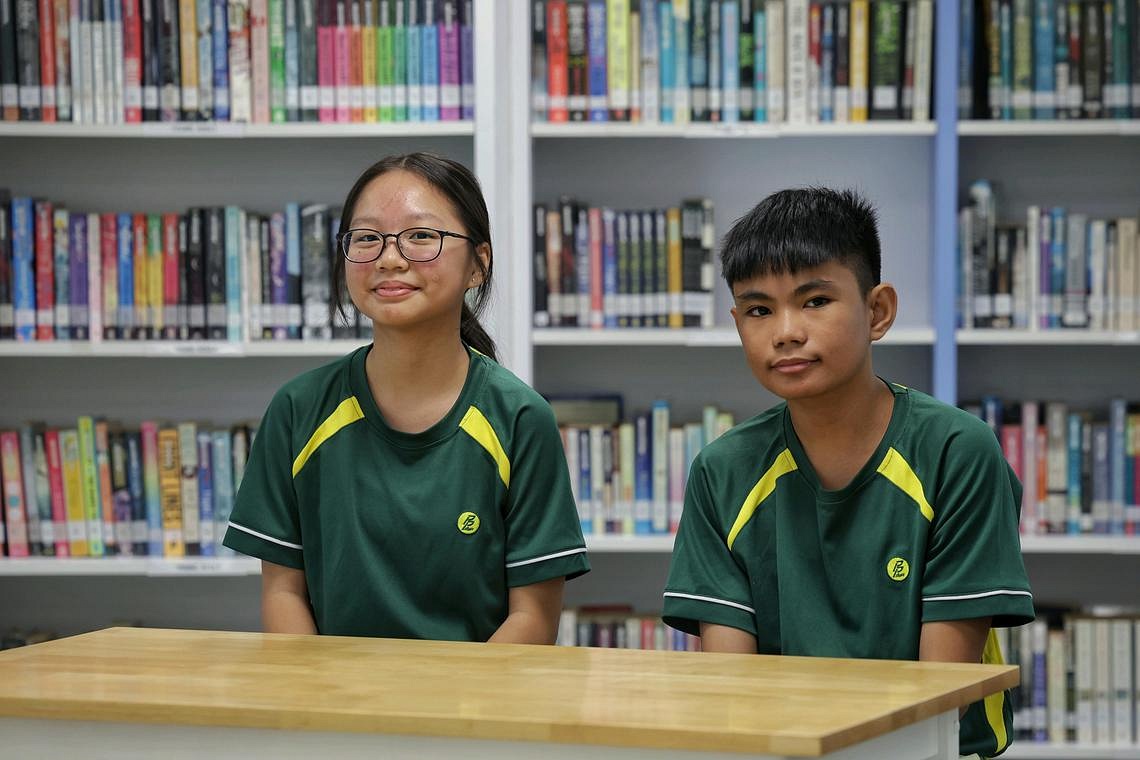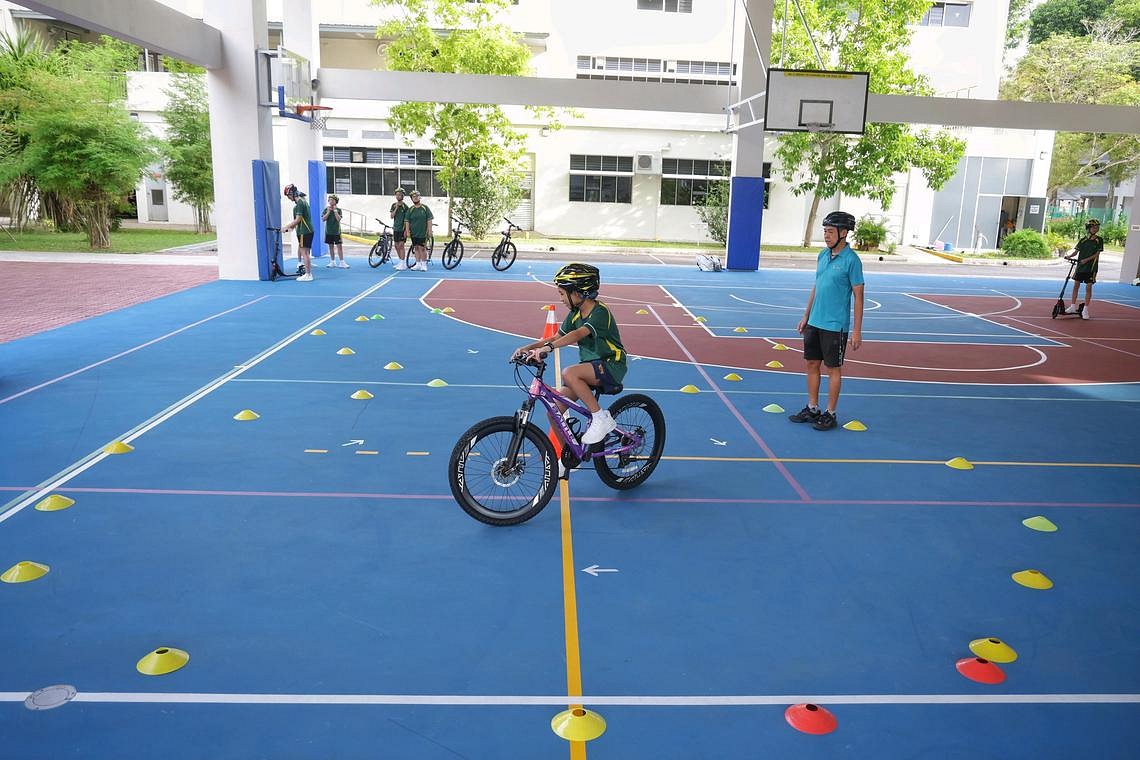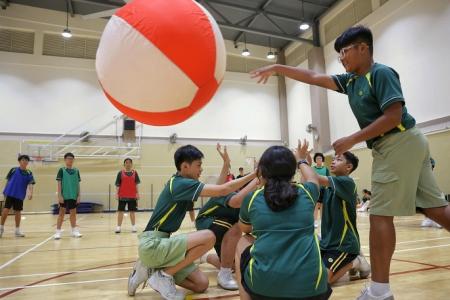Latest batch of 24 schools adopt full subject-based banding in 2024
In time to come, Secondary 2 student Caryn Heng, 13, hopes to take all of her core subjects at a higher level, with the goal of qualifying for a local polytechnic.
In 2024, she was assigned to Pasir Ris Secondary School under posting group 2 – one of three posting groups used by the Ministry of Education (MOE) to assign Primary 6 pupils to secondary schools.
The groups are mapped to the Primary School Leaving Examination (PSLE) score ranges for Normal (Technical), Normal (Academic) and Express courses.
For instance, pupils assigned to posting group 3 will take most subjects at the G3 level – the equivalent of the Express level.
Once in school, they can choose to take some subjects at a more demanding level, according to their specific subject results and abilities, under the MOE’s full subject-based banding approach, which has been fully implemented in 2024.
Pasir Ris Secondary School is among the latest batch of 24 schools to come on board full subject-based banding in 2024. A total of 120 secondary schools have adopted the approach in 2024.
After completing Secondary 1 and doing well in her examinations, Caryn was offered the chance to take three of her core subjects – mathematics, Chinese language and science – at the G3 level.
“I aim to work hard to promote my English language and humanities to G3,” she told The Straits Times during a media visit to the school on Jan 8. This would mean that she would be taking all her core subjects at a higher level.

Currently, students must offer five G3 (or O-level equivalent) subjects to enter the first year of polytechnic. But from the 2028 intake, they can offer four G3 subjects and one subject taken at either G2 or G3 in their aggregate score instead.
Caryn’s schoolmate, Tabo Alrick Marc Sta Rosa, 13, also hopes to do well enough to be offered a switch to G3 for all his core subjects in order to enter a junior college.
The Secondary 2 student currently takes G3 mathematics, and his other subjects at the G2 level.
MOE said that for the 2024 Primary 6 cohort, about 65 per cent of students eligible for posting groups 1 and 2 can take at least one subject at a more demanding level.
The option to change their subject level is open to them throughout their secondary school education.
“We get a second chance to change our subjects to a higher level,” said Noman Naushad, a Secondary 1 student who was sorted into posting group 1 and is now taking G2 Malay language.
Mrs Grace Chua, principal of Pasir Ris Secondary School, said: “One of the main challenges changing from the previous system to the new one was the systematic and logistical change.
“The complexity of the different and varied schedules due to the different groups also meant the structure of the timetable needs to be altered.”

To prepare for the change, the school sent its teachers for training. They also attended sharing sessions by other secondary schools that had already implemented full subject-based banding.
In 2025, the school altered its timetable – organising time slots in blocks of 20 minutes instead of the previous 40 minutes – to give it more flexibility in planning classes.
It also adjusted the sizes of its classrooms to cater to varying numbers of students in lessons and made spaces, such as the library, available for smaller classes.
Under full subject-based banding, students are placed in mixed classes, where they can interact with peers of different strengths and interests.
Their form class will spend about a third of their curriculum time taking a set of common curriculum subjects together. These include art, character and citizenship education, and music.
For core subjects such as mathematics and science, the students are split into their respective group levels.
Ms Maryam Anuar, a 36-year-old English language teacher at Pasir Ris Secondary, said one challenge for teachers was to ensure that all students feel valued in a diverse class setting and to address potential issues of comparison between them.
But she noted that students are no longer grouping themselves by academic ability, which has led to a more inclusive and positive classroom culture.
Mr Mohamed Ashiq, the school’s year head of upper secondary level, said: “The new system also allows students to mix more freely, leading to a better understanding of different backgrounds and strengths.”
Get The New Paper on your phone with the free TNP app. Download from the Apple App Store or Google Play Store now


